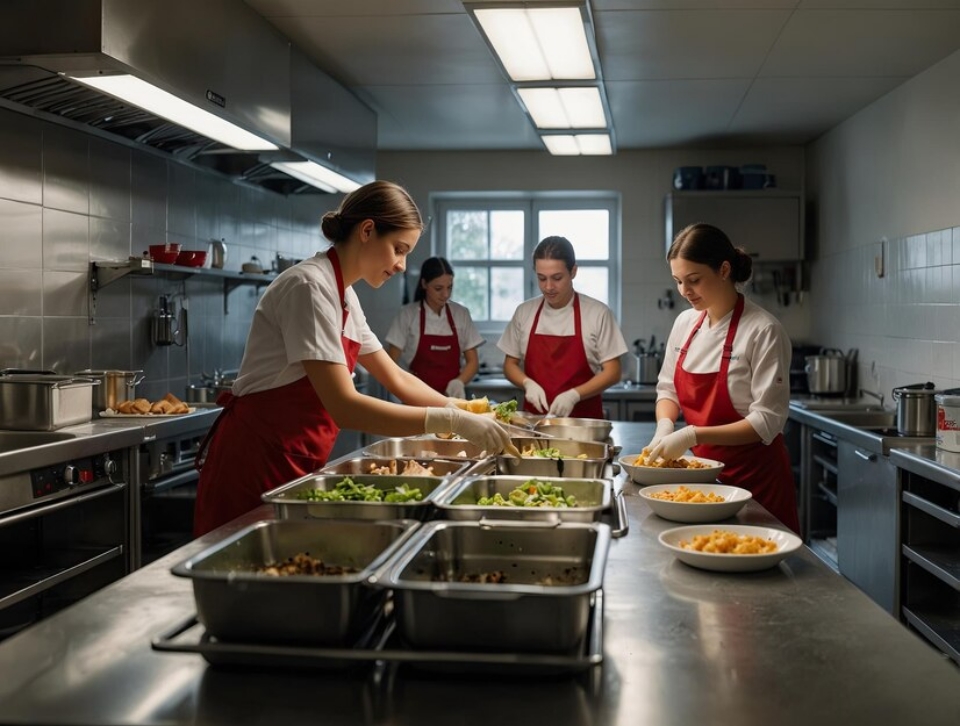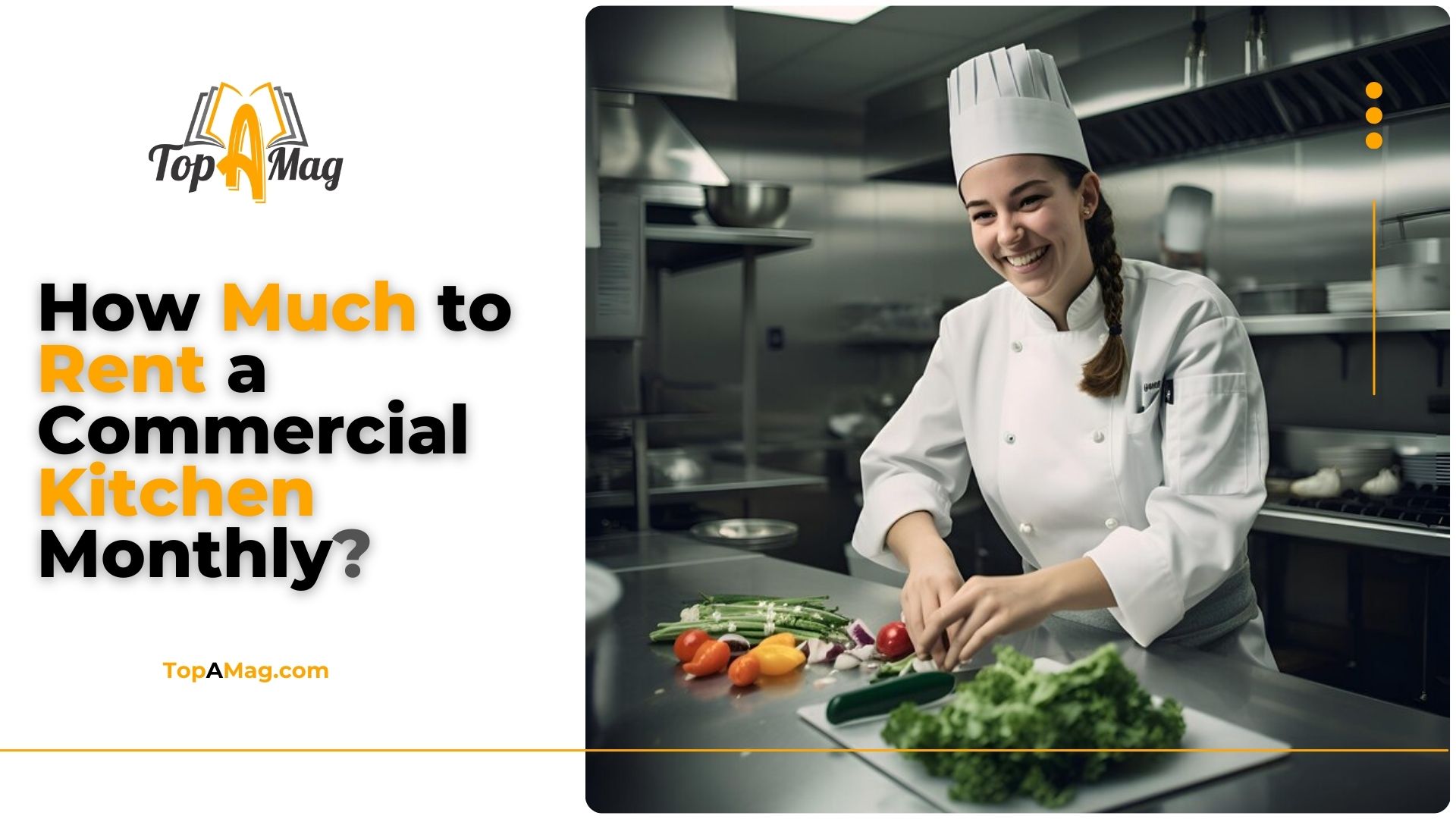Renting a commercial kitchen is a crucial step for many food business owners, including caterers, bakers, and food truck operators. The cost to Rent a Commercial Kitchen can vary widely based on location, size, and amenities offered. This article by the Top A Mag team delves into the factors affecting commercial kitchen rental costs, provides a breakdown of typical expenses, and offers tips for finding the best deals.
Key Takeaways
- Kitchen rental costs vary significantly based on location, with urban areas typically charging higher rates.
- Larger kitchens with more amenities will generally cost more.
- Security deposits, insurance, cleaning fees, and utility costs can add to your monthly expenses.
- Compare different options, read reviews, and negotiate terms to find the best deal.
- These can offer more affordable and flexible rental options.
How Much to Rent a Commercial Kitchen Monthly?
Starting a food business often requires access to a professional kitchen. Renting a commercial kitchen monthly can provide the space and equipment needed without the high upfront costs of purchasing and maintaining your own facility. Understanding the costs and factors involved in renting a commercial kitchen is essential for budgeting and planning.
Factors Affecting Commercial Kitchen Rental Costs
Location
The location of the commercial kitchen plays a significant role in rental costs. Kitchens in major metropolitan areas or prime locations typically charge higher rates due to increased demand and higher property values.

Size and Layout
The size of the kitchen and its layout can influence the rental price. Larger kitchens with more space for prep, cooking, and storage will generally cost more than smaller, more compact kitchens.
Amenities and Equipment
Kitchens that come equipped with high-end appliances, ample storage, and specialized equipment may have higher rental fees. Access to amenities such as dishwashing stations, refrigeration units, and freezers also adds to the overall cost.
Usage and Availability
The frequency and duration of your kitchen use will affect the monthly cost. Some kitchens offer lower rates for off-peak hours or long-term rentals. It’s important to consider your business needs and negotiate accordingly.
Typical Monthly Rental Costs
Low-End Rentals
For small food businesses or startups, low-end commercial kitchens might range from $500 to $1,500 per month. These kitchens usually offer basic amenities and are located in less central areas.
Mid-Range Rentals
Mid-range commercial kitchens typically cost between $1,500 and $5,000 per month. These kitchens are often in more desirable locations and come with better amenities and equipment.
High-End Rentals
High-end commercial kitchens, which may be located in prime urban areas and equipped with top-of-the-line appliances, can range from $5,000 to $10,000 or more per month. These kitchens are ideal for established businesses with high production needs.
Additional Costs to Consider when you Rent a Commercial Kitchen
Security Deposits
Many commercial kitchens require a security deposit, which can range from one month’s rent to several thousand dollars. This deposit is typically refundable, provided there is no damage to the property.
Insurance
Some kitchens require tenants to carry liability insurance, which can add to your monthly expenses. Insurance costs vary based on coverage limits and providers.
Cleaning Fees
Cleaning fees may be charged separately or included in the rental price. Regular cleaning and maintenance like kitchen sink replacement are crucial to meeting health and safety standards.
Utility Costs
Utility costs, including electricity, water, and gas, may or may not be included in the rental price. Be sure to clarify this with the kitchen provider to avoid unexpected expenses.
Tips for Finding Affordable Commercial Kitchen Rent

Research and Compare
Take the time to research and compare different commercial kitchen options. Look for reviews and testimonials from other renters to gauge the quality and reliability of the facility.
Negotiate Terms
Don’t be afraid to negotiate rental terms. You may be able to secure a lower rate or additional amenities by discussing your specific needs and budget with the kitchen provider.
Consider Shared Kitchens
Shared commercial kitchens, where multiple businesses use the same space, can offer significant cost savings. These kitchens typically charge lower rates and provide flexible scheduling options.
Explore Incubator Programs
Some cities offer kitchen incubator programs that provide affordable rental options for new food businesses. These programs often include business support services and networking opportunities.
Frequently Asked Questions (FAQs)
Are utilities included in the rental price of a commercial kitchen?
It varies. Some kitchens include utilities in the rental price, while others charge separately.
Do I need insurance to rent a commercial kitchen?
Many kitchens require liability insurance, which protects against damages and accidents.
Can I rent a commercial kitchen for just a few hours a week?
Yes, many kitchens offer flexible rental options, including hourly, daily, and monthly rates.
What should I look for in a commercial kitchen rental agreement?
Pay attention to terms related to rental costs, deposit requirements, insurance, cleaning fees, and utility charges.
Are shared commercial kitchens a good option?
Shared kitchens can be cost-effective and provide flexible scheduling, making them a good option for small businesses.
How can I find a commercial kitchen to rent?
Research online, visit local culinary incubators, and network with other food entrepreneurs to find available kitchens.
Conclusion
Renting a commercial kitchen monthly is a viable option for many food entrepreneurs, providing access to necessary facilities without the high costs of ownership. By understanding the factors that influence rental prices and exploring different options, you can find a kitchen that meets your needs and budget. Whether you’re just starting or looking to expand your business, the right commercial kitchen can help you achieve your culinary goals.
By following these guidelines and considering all factors, you can make an informed decision about renting a commercial kitchen that fits your business needs and budget.

